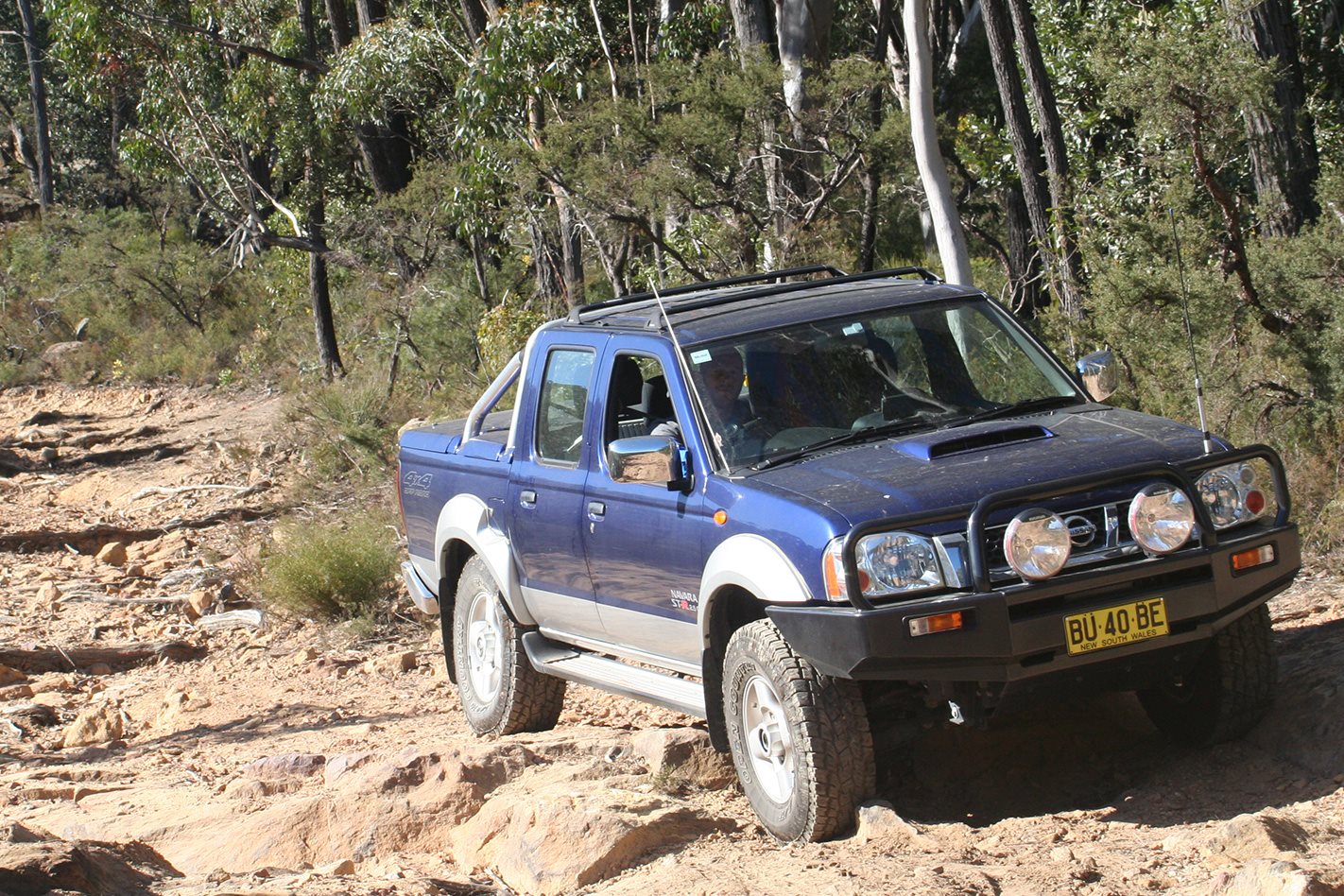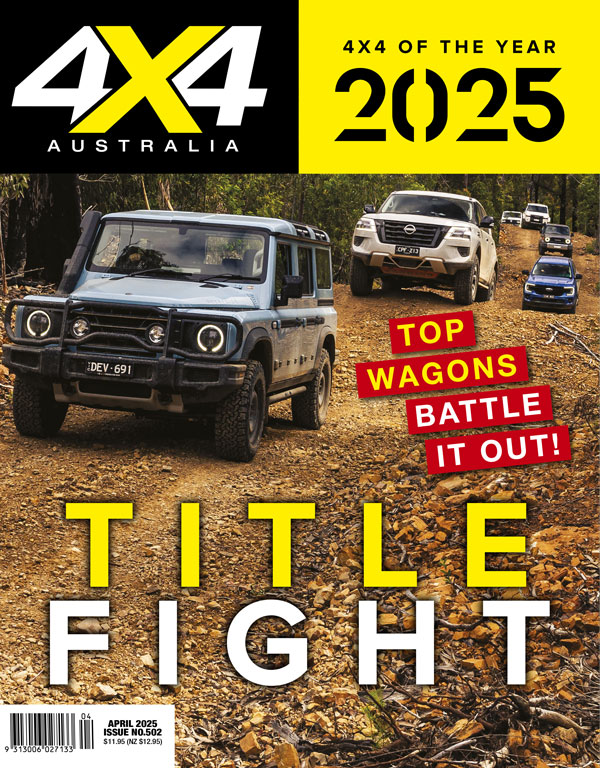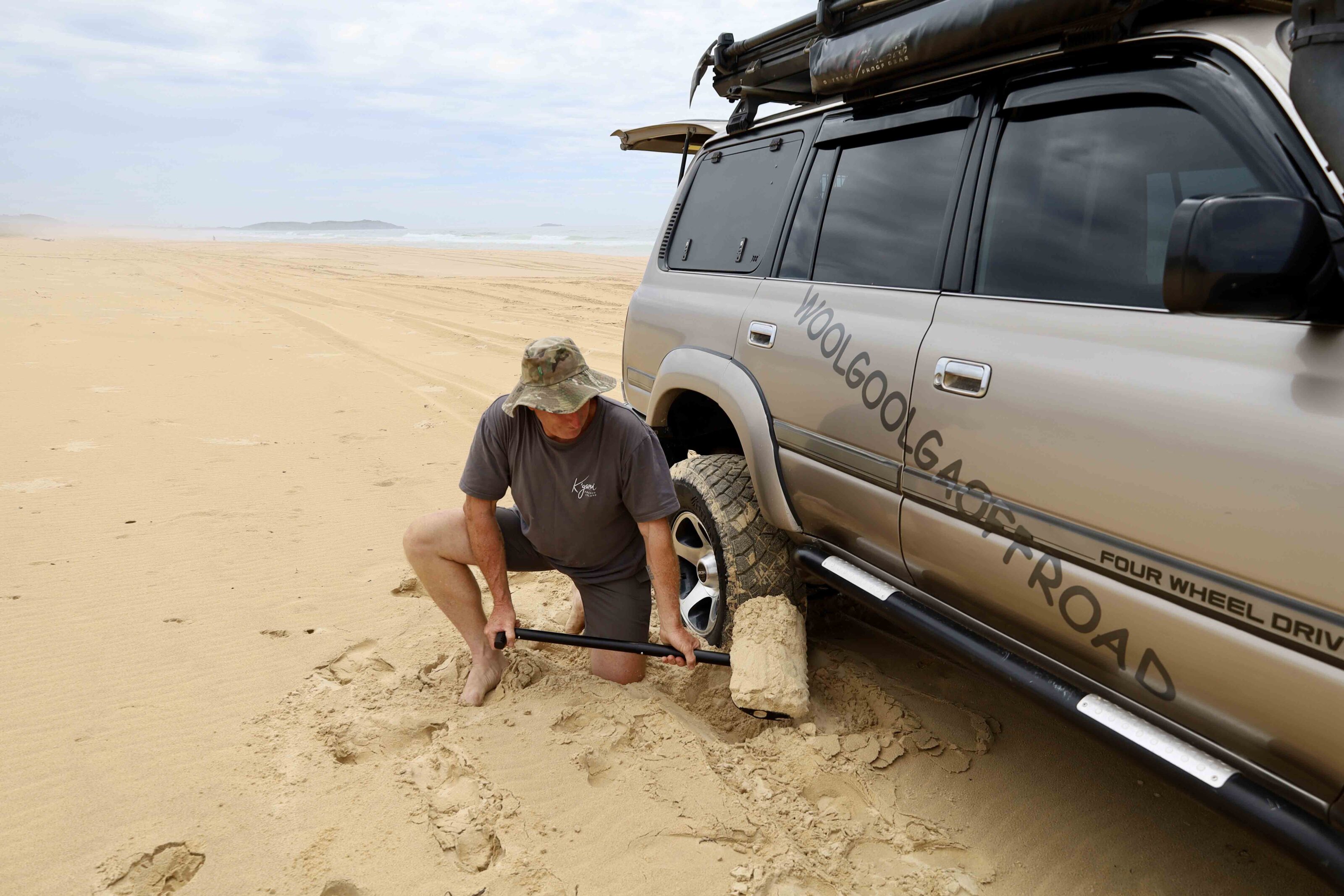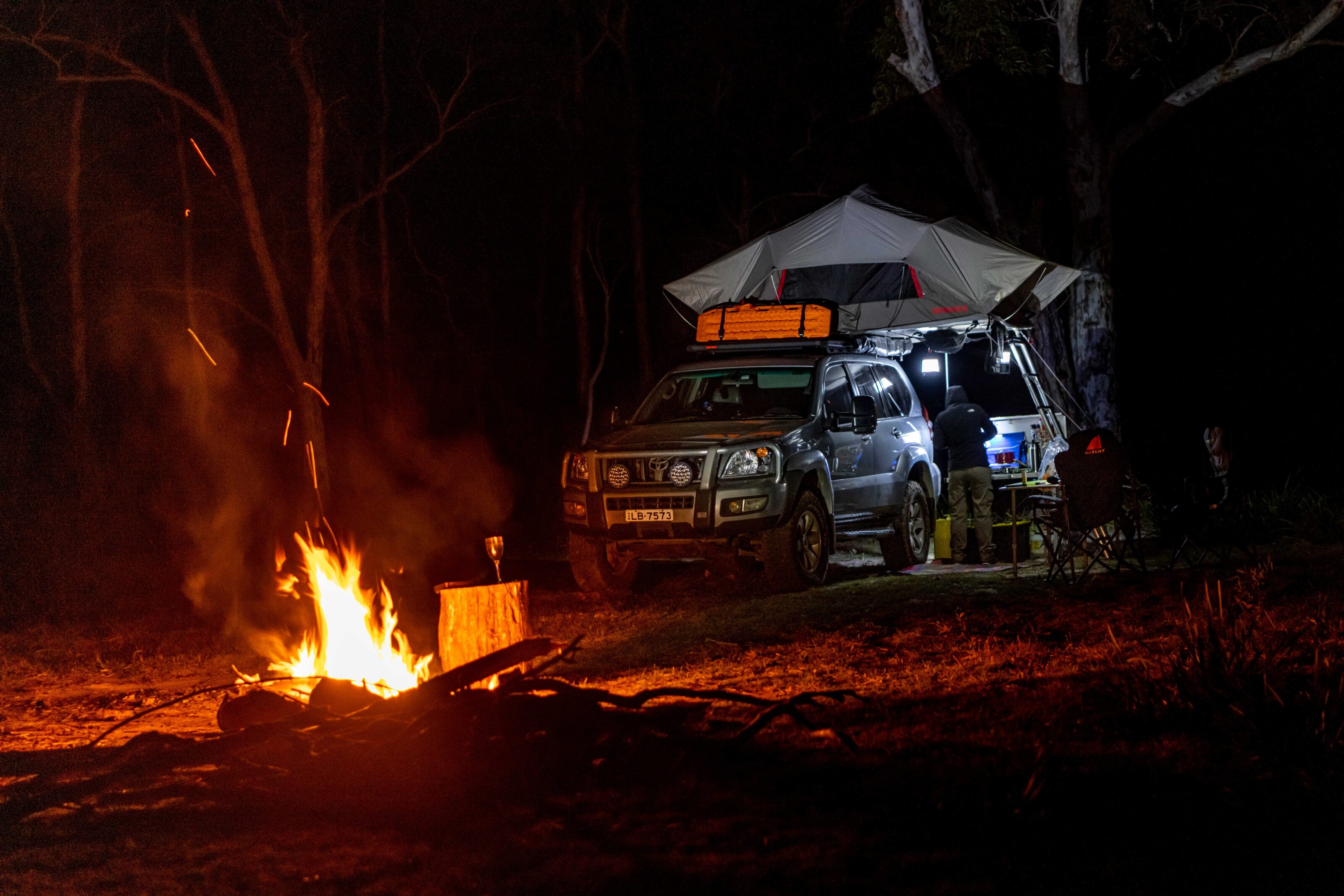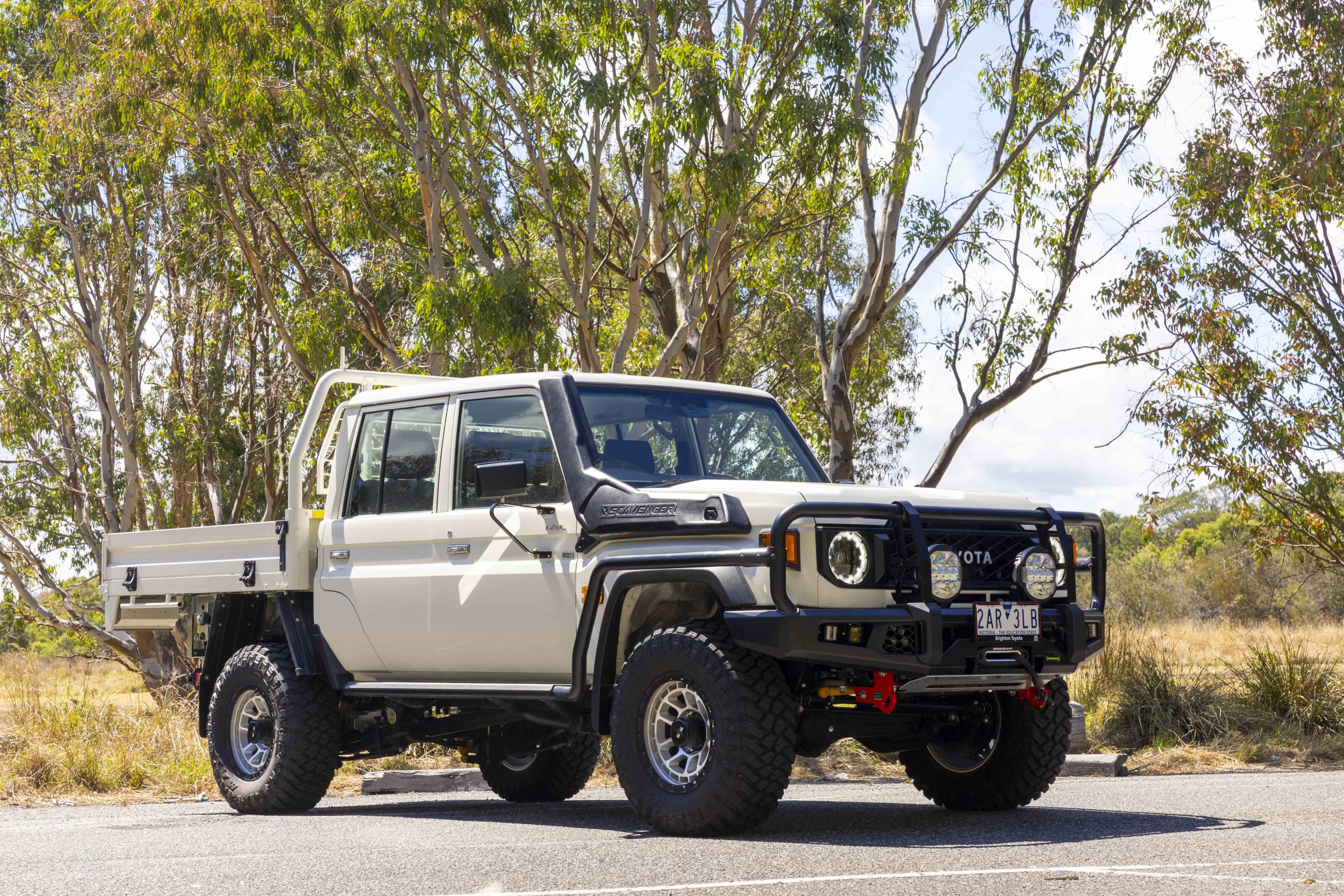Like many four-wheel-drive utes, the suspension on the Nissan Navara D22 is a basic set-up; independent up front with torsion bars and a live-axle at the rear with leaf springs.
When you consider the D22 was launched some 18 years ago, it’s little wonder that the ride and handling are somewhat deficient by today’s standards.
The big problem with the Navara D22 is that the front suspension feels like it’s been tuned to suit a different vehicle than the rear suspension; all spongy and bouncy at the pointy end and all harsh and bone-jarring down the back. In short, it’s bloody awful.
Thankfully there are aftermarket suspension experts, such as those at Tough Dog, who have developed kits to improve the D22’s ride and handling. Tough Dog offers several suspension upgrade options for the Navara D22 tailored to the individual requirements of the owner. These options can be easily configured by the vehicle owner by using the ‘Kit Builder’ function on the Tough Dog website (www.toughdog.com.au).
In the case of my Navara, which is equipped with a steel bull bar (but no winch) and rarely carries a heavy load in the tray, the most suitable set-up was deemed to be the ‘Light Rear Load’ kit, which consists of 41mm foam cell shock absorbers front and rear, new rear leaf springs designed to operate with a light rear load (up to 300kg), U-bolts and urethane bushes. Without the weight of a winch up front, the standard torsion bars were retained, but these can be easily replaced at a later date if I fit a winch down the track.
In standard trim, the mismatched standard suspension on the D22 meant that, over anything rougher than a billiard table-smooth surface, the front-end felt too soft and spongy while the rear-end felt harsh and firm. Over bumps the front-end bounced up and down like a pogo stick, making it feel as though the whole vehicle was pivoting around the rear axle. As for the rear suspension, it was extremely uncomfortable whether there was a load in the tray or not.
The standard rear leaf springs on the Navara have two main leaves on each side and two shorter leaves. At normal ride height, only the two main leaves work, offering a relatively soft ride, but when the suspension is compressed, such as when there’s a heavy load on board, the two short leaves come into play. This variable spring rate is designed to offer a soft and comfortable ride when the vehicle is unladen, while still handling a heavy load without excessive sagging. The problem is, however, that the two main leaves are too soft so, when the vehicle drives over a bumpy surface, the leaves compress too readily and the shorter leaves come into play with a sudden jolt.
Unlike the standard-variable-rate leaf springs, the replacement Tough Dog springs have a linear spring rate with eight leaves per side. As they are tailored to suit the expected load of the vehicle (in this case, 0-300kg), these linear springs offer a far more compliant ride over rough surfaces. And it’s not only ride quality that benefits, as the consistent nature of these linear springs optimises traction and makes the vehicle feel more stable, with more predictable handling.
Another advantage offered by the Tough Dog leaf springs is a 40mm ride-height increase, which benefits ground clearance when driving off-road. Before having the Tough Dog kit fitted, I’d already wound the standard torsion bars up by about 35mm to handle the extra weight of the steel bull bar, and to provide clearance for the slightly bigger 265/75R16 Toyo Open Country II tyres. But, without much compression-damping force, the front-end still tended to bottom-out too readily off-road, resulting in scrapes over rough terrain. With the new Tough Dog shock absorbers fitted, this is no longer the case.
The springs are mated to Tough Dog 41mm foam cell twin-tube shock absorbers, which offer substantially more damping control than the standard shocks. In fact, the difference in damping performance over the standard shock absorbers is so significant that the front suspension feels like the springs have been replaced, too. The front-end no longer bottoms out, thanks to much improved compression damping, and the improved rebound damping prevents the front-end from bouncing into the air when the springs want to release their compressed energy. On the road this means the Navara exhibits more sure-footed handling and improved ride quality, while off-road it no longer bottoms out and rarely scrapes its belly.
While it’s possible to detect individual improvements in the suspension performance, it’s the way it all comes together in an integrated package that’s the most impressive aspect of this upgrade. With a more compliant and linear spring rate at the rear, and much better damping control at the front, both ends of the Navara now feel like they belong on the same vehicle.
Overall ride quality is on the firm side, but there’s none of the harshness that was there before. I can now drive over bumpy surfaces without fear that the front-end will bottom out and bounce around, while the rear-end no longer sends shock waves through the cabin, whether there’s a load in the tray or not.
As well as better ride quality, handling is also significantly improved. There’s less body roll when cornering, there’s more grip and the steering doesn’t feel as vague as it once did. The Tough Dog ‘Light Rear Load’ kit fitted to my Navara can be optioned up with several other components, such as nitrogen gas shock absorbers, 40mm adjustable rear shock absorbers and even a steering damper. At this stage I’m more than happy with the ‘standard’ kit.
A winch is definitely on my shopping list, so I’ll have to upgrade the torsion bars down the track (the Tough Dog torsion bars are claimed to offer a spring rate that’s approximately 30 per cent higher than the standard torsion bars), but it’s great to know that’s the only modification I’ll have to make, as the same 41mm foam cell front shock absorbers can be retained.
As for the rear, I don’t envisage I’ll ever need to upgrade the rear springs, as even when I’m touring I don’t carry too much gear in the back of the Navara.

